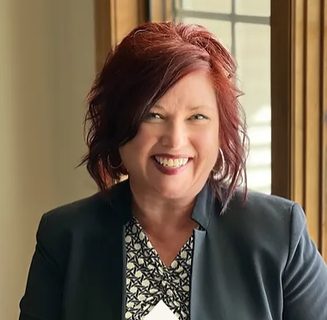By Tom Still
MADISON – Photographs of Terri Schindler-Schiavo before she was destined to lie year after year in a hospital bed don’t betray signs of the 15-year struggle that will likely end with her death this week. This attractive young woman was only 26 in early 1990 when a suspected potassium imbalance triggered a cardiac arrest. Her brain was deprived of oxygen for at least five minutes.
Schiavo didn’t have a “living will,” otherwise known as an advance directive. That’s not surprising: Living with brain damage and being fed through a tube is a fate far from the minds of most healthy adults. But if her sad case has given Americans nothing else to agree on, it is that people who don’t want to live like Terri Schiavo should have a living will.
A living will, or advance directive, is a legal document designed to let people stipulate ahead of time whether they want a variety of extra measures to keep them alive after an accident has caused serious brain damage or a terminal illness have nearly run its course. With an advance directive, there should be little guesswork about a person’s last wishes, even if accident or illness leaves that person unable to communicate.
A dispute over Terri Schiavo’s wishes lies at the crux of this divisive, yet instructive, nationally publicized case. Her husband, Michael Schiavo, and others say Terri talked casually about not extending her life with artificial support if it ever came to that. Her parents say otherwise. On nearly 30 occasions, however, the courts have sided with Michael Schiavo in upholding an order to withdraw a feeding tube. This spectacularly expensive and bitter case is the exception, but it’s not unprecedented when there are no written directives in place.
Do you want chest compressions to restart your heart? How about a feeding tube in case you cannot feed yourself? Do you want a ventilator? If you are in a coma, how long should doctors keep you alive in hopes that your brain may jolt itself awake?
Those types of questions can be answered by living wills, which many doctors and lawyers recommend as a means of avoiding complicated legal fights and settling even more ethically vexing medical questions. The state of medical technology means it is possible to keep many people “alive” indefinitely; the question is whether the pain, diminished quality of life and costs are worth it.
“Anybody who comes in unconscious (to a medical facility) really is at the mercy of their family or the physicians or eventually the courts,” Dr. William Rock, medical director of HospiceCare in southern Wisconsin, said in a recent interview with the Wisconsin State Journal.
Living wills can take back that control – and they’re not necessarily expensive to execute. In Wisconsin, people interested in forms and more information can visit the website of the State Bar of Wisconsin (www.wisbar.org/bar/lifeplan) or call 800-728-7788. The state Department of Health and Family Services also have information at www.dhfs.state.wi.us/forms/AdvDirectives/ADFormsPOA.htm. Nationally, a good source of information is the American Bar Association at www.abanet.org/aging/toolkit/home.html
But as the ABA cautions, an advanced directive alone may not be enough. “You should be aware that just having a written advance directive by itself does not ensure your wishes will be understood or respected. Studies have shown that standard advance directive forms do little to influence end-of-life decisions without informed, thoughtful reflection about your wishes and values, and personal communication between you and your likely decision-makers before a crisis occurs.”
It isn’t easy talking about death, or reflecting on what will come in your final days. As the Terri Schiavo story has shown, however, even the most personal and private decisions can, quite literally, become a federal case.
Still is president of the Wisconsin Technology Council. He is the former associate editor of the Wisconsin State Journal in Madison.
608.442.7557
news@wisconsintechnologycouncil.com




